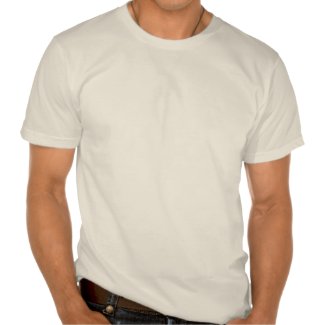 When Ladies Meet (1941) is one of MGM's megastar dramas, featuring four brand-name stars, lush production values and a screenplay drawn from a high-profile property. For all that, it's a pretty weak film.
When Ladies Meet (1941) is one of MGM's megastar dramas, featuring four brand-name stars, lush production values and a screenplay drawn from a high-profile property. For all that, it's a pretty weak film.
The script is based on a Rachel Crother's play about a popular novelist struggling to finish her latest book whose protagonist is a woman having an affair with a married man. In "real life," the author (Joan Crawford) is having an affair with her married publisher (Herbert Marshall). Her boyfriend (Robert Taylor) hopes to break them up by inviting the publisher's wife (Greer Garson) to country week-end with all the interested parties. It's a cracking great set-up for either melodrama or comedy. The script is intelligently written, the characters are interesting and the dialogue strikes a nice balance between wisecracks and wisdom. I can't remember ever watching a movie with a script this good, that I liked this little. Why don't I love this movie?
The problem is the married man. For certain of my favorite movie stars, I have cut-off years. Laurence Olivier is 1960. Michael Redgrave is 1950. And Herbert Marshall is 1940. I know that these actors probably did some fine work after these dates, but I've just never been interested in it. And, to make matters worse, I've so often been disappointed by by their post-cut-off work, that my prejudice has tended to reinforce itself. When Ladies Meet is a rather drastic example of this. The whole thing hinges on
It's hard to believe that Joan Crawford would ignore Robert Taylor to have an affair with this man or that Greer Garson would stick by him. Not to mention the fact that you find yourself wondering why a man who is married to a woman fifteen years his junior who looks like Greer Garson is philandering to begin with? And that's just the start of this film's casting troubles.
Garson plays the older, wiser, married woman, and Crawford the young, single profession who is dealing with the realities of love for the first time. Robert Taylor refers to Crawford as a "gal," and the whole point of the script is that she's rationalized herself into a big mistake. Garson was only a year older than Crawford, but she seems much younger--perhaps because she'd only been acting in film a few years while Crawford had been a familiar face for well over a decade. In any case, Crawford comes off as far too worldly to fall for
I look forward to watching the pre-code version of this film with Ann Harding as the wife, Myrna Loy as the mistress, Robert Montgomery as the boyfriend and Frank Morgan as the two-timing publisher. Replace Morgan with





7 comments:
I've never seen this movie. I'm a massive Crawford fan but i've never got around to it, precisely because of what you said about Herbert Marshall. I do like him in earlier movies (Foreign Correspondent!)
But after 1940 his appeal did decline. In 'The Little Foxes' with Bette Davis I suppose seeming old suited the character, but in 'Ivy' with Joan Fontaine he was the guy she poisoned her husband for it was so unconvincing because, as some imdb reviewer put it, he 'had about as much sex appeal as yesterday's omelet.'
I'm not shallow as shallow as I sound, haha.
Herbert Marshall's appeal on film may have declined in his later years for some, but off-screen was an entirely different matter and that's for an entirely different discussion. If I were watching this film tonight with my mother, she would choose Robert Taylor in an instant. I would obviously go with Marshall. So appeal may be in the eye of the beholder. I've never had a problem envisioning Marshall having extra-marital affairs and being forgiven by a Greer-Garson-kind-of-wife because there are wives who always forgive and forgive and forgive (and I'll forgive Greer Garson just about anything because she got George Sanders into acting). So having Garson repeatedly forgive Marshall for infidelity isn’t my problem with the film.
Unfortunately, Joan Crawford is my problem. Crawford in Johnny Guitar is wonderful. Crawford in The Women is wonderful. But not as wonderful here and I think, as was suggested, it is expectations. My willing suspension of disbelief just doesn’t always work, or in the case of Marshall works too well, and I just don’t see Joan Crawford as Mary. I see her pulling a gun on Mercedes McCambridge or perhaps using an axe on Marshall’s wooden leg, but not as this character. However, I don’t know who, if you keep the other three cast members, would replace her.
Yeah, Eva, I think he is just miscast in Ivy. He is great in the Little Foxes, but it's kind of painful. I think HM was still very attractive, but it was hard for him to find the right kind of roles after he was 50 in 1940. He played a lot of dads and uncles, which is to be expected. Then he played a lot of men who were either cheated on (The Letter) or were cheaters (Ivy, When Ladies Meet). I think I wouldn't poison my husband to have an affair with him, but I wouldn't cheat on him either. Does that make sense? Probably not.
Nora: HM was such a dawg in real life. It's hard to believe with his mild-mannered persona, especially in his later career. I just think his character is so phony that it's hard to like him. I think if this movie were pre-code they could have made it a lot sexier and I'd buy the whole thing.
I love Greer too! You are right, there are wives who just forgive over and over and men who cheat when their wives are amazing (Case in point Kenneth Brannagh cheating on Emma Thomson).
I agree with you on Joan too. I love her certain films and certain kinds of roles, but this just doesn't quite work for me.
I love this movie, although I agree that poor Greer Garson really gets the shaft. I love it when she tells off her ridiculous husband, though. And Robert Taylor is HILARIOUS.
just found your blog and, as a lover of Old Hollywood movies, am intrigued.
I know nothing of HM's personal life but, by the way you describe the roles and casting, sounds like they should have been reversed. Crawford looked hard and beyond her years once she started painting in the eyebrows. Garson was light as a feather. Taylor was incredibly beautiful til he became a heavy drinker. HM always the upright, uptight gentleman. He did often paly the sorry sap of a husband, particularly w/ Davis in "Foxes" and "The Letter". whew! I loved him as Somerset Maugham in "The Razor's Edge", a favorite movie. Here he could observe, be confided in, give advice. It suited him.
Fun post and some very well-considered comments. As Arnold would say, "I'll be back!"
It's been 16 days since you posted, so I get license to be silly: there's a remake of this film in the works. It's called "When Ladies Tweet."
I've seen both and comparing the two, I find the 1941 version better. But you may like Myrna Loy and Robert Montgomery better than Crawford and Marshall in the roles.
Post a Comment